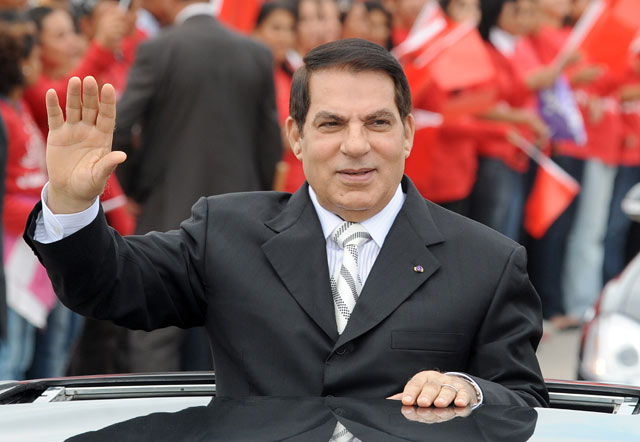They connect to Twitter or record the bloody repression against the protesters with their gadgets, the protesters expressed their anger against their leaders in the Middle East and North Africa used the technology to undermine existing regimes. In the same places where you actually perform unprecedented demonstrations, from Tunis to Cairo, and from Sanaa to Manama, the images often show people, mostly young men waving his camera phone.
The images, often shaky, sometimes reflect peaceful demonstrations and sometimes scenes of real butchers. Then you post on Facebook, Twitter, Flickr, YouTube, and then jump to television stations like Al Jazeera or CNN, they recover and redistribute this material. The most striking videos of a user in Libyan used pseudonym 'enoughgaddafi', collected on the site YoutTube site created by CitizenTube.
In Bahrain and Libya, very violent images of police repression of the demonstrations have raised criticism from the international community against leaders of both countries, and have fueled anger in the street. Micah Sifry, co-founder of the website TechPresident, a blog devoted to politics and technology, said in a recent article that the penetration of mobile phones is far more important than the Internet in the Middle East.
"The most important factor now appears to be the growing power of a generation that not only young, but also live in cities and have a mobile phone," Sifry said. "Could it be that we are witnessing the political maturation of the SMS generation," he asked. In any case, generally, it is unclear to what extent social networks and mobile phones have contributed to the overthrow of regimes in Tunisia and Egypt, not to mention the ongoing movement in Libya, Algeria, Bahrain, Iran, Jordan Morocco and Yemen.
However, such com did former Egyptian President Hosni Mubarak, Libyan President Muammar Gaddafi seems to have taken measures against the possible threat of the Internet and has deprived people of access to the Internet for the militant and Marketing Manager Google Middle East and North Africa, Wael Ghonim, one of the icons of popular uprising in Egypt, social networks clearly played an important role in the fall of Hosni Mubarak.
"Without Facebook, or Twitter, or Google or YouTube might never have happened", said the program "60 Minutes" on CBS. Obama's government is also aware of the role of Web in the movements that shook the Middle East. Alec Ross, which advises the Secretary of State Hillary Clinton in new technologies, recently estimated that social networks have played an "important role" in the events in Tunisia and Egypt, but "the technology has not created these movements." "We have seen revolutions revolutions Facebook or Twitter," he said.
"Technology has sped up the difference. A movement that normally take months or years has been compressed into a much shorter period," said Ross. "Che Guevara of the century is the global network. There is no need for a single charismatic figure to promote and organize the masses," he concluded. 


The images, often shaky, sometimes reflect peaceful demonstrations and sometimes scenes of real butchers. Then you post on Facebook, Twitter, Flickr, YouTube, and then jump to television stations like Al Jazeera or CNN, they recover and redistribute this material. The most striking videos of a user in Libyan used pseudonym 'enoughgaddafi', collected on the site YoutTube site created by CitizenTube.
In Bahrain and Libya, very violent images of police repression of the demonstrations have raised criticism from the international community against leaders of both countries, and have fueled anger in the street. Micah Sifry, co-founder of the website TechPresident, a blog devoted to politics and technology, said in a recent article that the penetration of mobile phones is far more important than the Internet in the Middle East.
"The most important factor now appears to be the growing power of a generation that not only young, but also live in cities and have a mobile phone," Sifry said. "Could it be that we are witnessing the political maturation of the SMS generation," he asked. In any case, generally, it is unclear to what extent social networks and mobile phones have contributed to the overthrow of regimes in Tunisia and Egypt, not to mention the ongoing movement in Libya, Algeria, Bahrain, Iran, Jordan Morocco and Yemen.
However, such com did former Egyptian President Hosni Mubarak, Libyan President Muammar Gaddafi seems to have taken measures against the possible threat of the Internet and has deprived people of access to the Internet for the militant and Marketing Manager Google Middle East and North Africa, Wael Ghonim, one of the icons of popular uprising in Egypt, social networks clearly played an important role in the fall of Hosni Mubarak.
"Without Facebook, or Twitter, or Google or YouTube might never have happened", said the program "60 Minutes" on CBS. Obama's government is also aware of the role of Web in the movements that shook the Middle East. Alec Ross, which advises the Secretary of State Hillary Clinton in new technologies, recently estimated that social networks have played an "important role" in the events in Tunisia and Egypt, but "the technology has not created these movements." "We have seen revolutions revolutions Facebook or Twitter," he said.
"Technology has sped up the difference. A movement that normally take months or years has been compressed into a much shorter period," said Ross. "Che Guevara of the century is the global network. There is no need for a single charismatic figure to promote and organize the masses," he concluded.



No comments:
Post a Comment